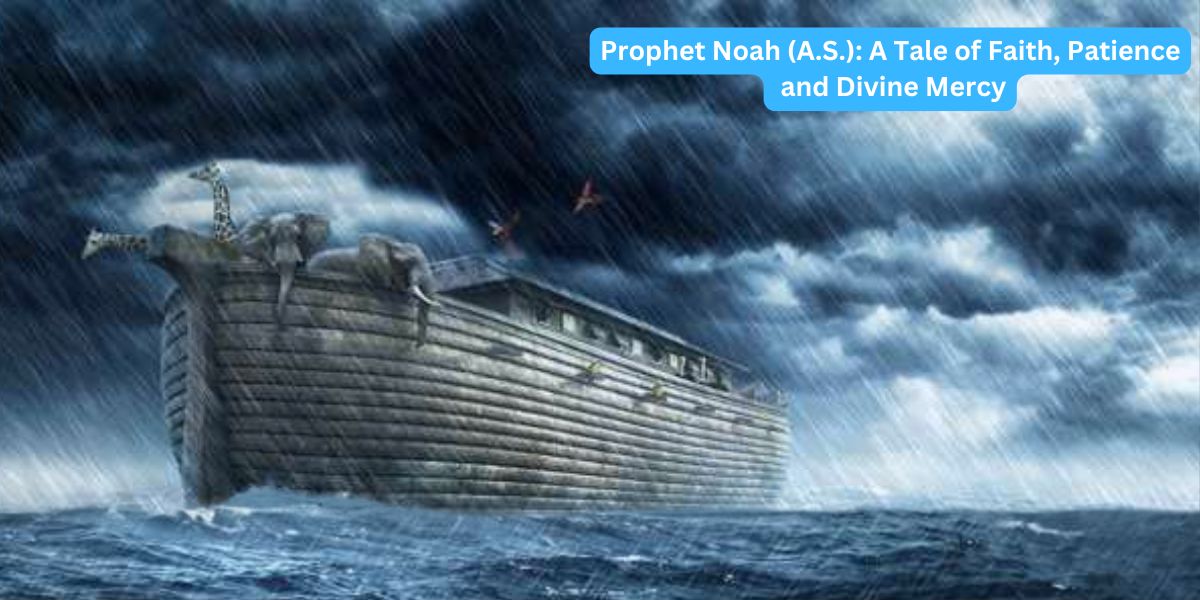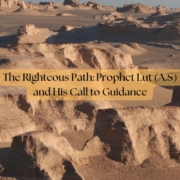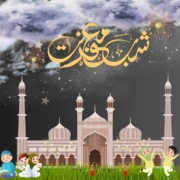Prophet Noah (A.S.): A Tale of Faith, Patience, and Divine Mercy
Prophet Noah (A.S.), known as Noah in English, holds a significant place in Islamic tradition as one of the five great prophets. His story is a timeless narrative of faith, perseverance, and divine mercy. The Quran recounts his tale in multiple chapters, primarily in Surah Hud (11:25-49) and Surah Noah (71:1-28), offering profound lessons for humankind.
The Call to Monotheism
Prophet Noah (A.S.) was sent by Allah to a society deeply entrenched in idolatry. His people worshipped false gods such as Wadd, Suwa’, Yaghuth, Ya’uq, and Nasr (Quran 71:23). Allah chose him as a prophet to guide his people back to monotheism. He called them to abandon their idols and worship Allah alone, saying:
“O my people, worship Allah; you have no deity other than Him. Indeed, I fear for you the punishment of a tremendous Day.” (Quran 7:59)
Despite his unwavering efforts, his people rejected his message. They ridiculed him, accusing him of madness and deceit. Noah (A.S.) continued his mission with patience, employing reason, compassion, and persistence for over 950 years (Quran 29:14).
The Rejection of the Message
Noah’s (A.S.) people remained obstinate, claiming his teachings contradicted their ancestral practices. They turned a blind eye to his wisdom and even threatened him. Noah (A.S.) lamented their arrogance:
“My Lord, indeed I invited my people [to truth] night and day. But my invitation increased them not except in flight.” (Quran 71:5-6)
His people’s stubbornness not only hurt their souls but also led them to actively mislead others. They blocked their ears, covered themselves with garments, and refused to listen to him (Quran 71:7).
The Construction of the Ark
When his people’s disbelief became unchangeable, Allah commanded Noah (A.S.) to build an ark as a means of salvation. This task became another reason for mockery, as his people laughed at the idea of a massive boat being built far from water.
“And he constructed the ship, and whenever an assembly of the eminent of his people passed by him, they ridiculed him.” (Quran 11:38)
Undeterred by their scorn, Noah (A.S.) completed the ark, adhering strictly to Allah’s instructions. This demonstrates the value of obedience and trust in divine wisdom, even when the command may seem incomprehensible at first.
The Great Flood
Allah’s warning came to pass. The heavens poured rain, and the earth gushed forth water, creating a deluge that engulfed the land. Noah (A.S.) was commanded to take believers and pairs of animals aboard the ark (Quran 11:40).
As the waters rose, Noah (A.S.) pleaded with his disbelieving son to join him, but his son refused, trusting the mountains to save him. Noah (A.S.) cried out to Allah in anguish, but Allah reminded him that his son was among the wrongdoers (Quran 11:42-46).
This moment underscores the limits of human influence and the absolute sovereignty of Allah.
The Aftermath of the Flood
When the flood subsided, the ark came to rest on Mount Judi (Quran 11:44). The disbelievers perished, and the earth was cleansed of corruption. Allah made Noah (A.S.) and his followers’ inheritors of the land, a sign of divine justice and mercy.
“And We left it as a sign, so is there any who will remember?” (Quran 54:15)
Moral Values from the Story
- Faith in Allah’s Guidance: Noah (A.S.) exemplified unwavering trust in Allah despite enduring immense rejection and ridicule. His story teaches that patience and reliance on Allah lead to ultimate success.
- Perseverance in Dawah (Preaching): Despite preaching for centuries, Noah (A.S.) never wavered in his mission. His persistence inspires believers to remain steadfast in spreading truth, even in the face of adversity.
- Accountability for Actions: The story highlights that salvation is based on individual faith and deeds. Even Noah’s (A.S.) own son could not be saved due to his disobedience, reinforcing the Quranic principle:
“And no bearer of burdens will bear the burden of another.” (Quran 6:164)
- Obedience to Allah’s Commands: Building the ark demonstrated Noah’s (A.S.) complete submission to Allah, teaching believers to trust divine wisdom even when commands seem inexplicable.
- Warning Against Arrogance and Disobedience: The destruction of the disbelievers serves as a stark reminder of the consequences of arrogance and rejecting divine guidance.
Hope and Renewal:
The flood, while catastrophic, also marked a new beginning for humanity. It illustrates Allah’s mercy and the opportunity for a fresh start.
The story of Prophet Noah (A.S.) is not just a historical account but a source of profound lessons applicable to every era. It teaches believers to remain steadfast in their faith, patient in adversity, and obedient to Allah’s commands. Above all, it serves as a reminder that Allah’s mercy is vast, but His justice is inevitable. Let us heed these lessons, striving to walk the path of righteousness and avoid the pitfalls of arrogance and disbelief.
“Indeed, We sent Noah to his people, [saying], ‘Warn your people before there comes to them a painful punishment.'” (Quran 71:1)












